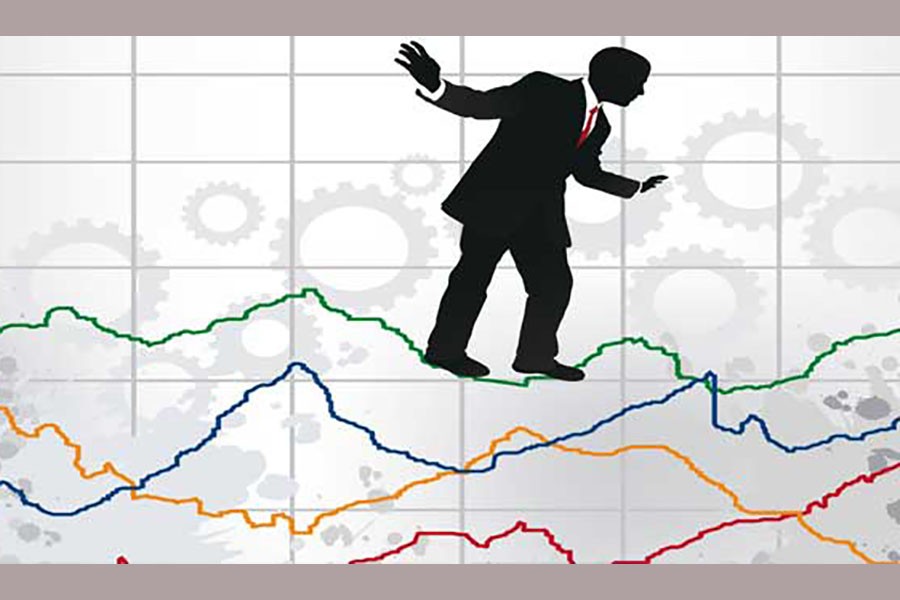It all seems to be happening at once. Increased fuel prices, a surge in staple imports added to which is capital machinery, the import bill is growing at a pace faster than exports. Following two robust months in the current fiscal year (FY), exports are plummeting or even struggling to maintain last year's trend. The central bank has already sold more greenbacks in the first three months of this fiscal than put together last year, to keep the taka from spiralling into depreciation.
That remittances would decline was a foregone conclusion yet the authorities didn't have a back-up plan. With most of the labour-destination economies having slowed down, so has spending on development projects. That coupled with official channel remittance turning out to be more expensive and less convenient, the informal channels have taken over. Unless there's additional incentive expatriate workers won't be inclined towards the official channels. Given that businesses find leasing loans easier and more favourable than bank loans, no matter the difference in interest rates, there's something wrong somewhere.
Personal loans and credits are rising, dangerously so, according to the central bank. Yet the informal sector is churning out small loans at hefty interest rates, especially for the less well-off section. In both personal and business loans it is clear the interest rates aren't as big a factor as made out to be. Quick turnaround, smoother processing and a decidedly friendlier system have struck a chord. Admittedly, the informal sector has harsh informal processes of loan recovery. A fear factor greater than legal action rules supreme. It calls into question, the rigorous and at times lengthy systems and processes that require to be in place in the formal sector. As it stands exports are leaning towards a $2.0 billion a month level, significantly lower than forecast. With the Organisation of Petroleum Exporting Countries (OPEC) looking to the United States to cap extraction so as to boost prices, the days of cheap fuel may soon be over, leading to rising import costs. The World Bank has provided a gentle reminder that Bangladesh's graduation to a lower middle-income country will come with its own pains. Concessionary rates of 0.75 interest on loans will now jump to 2.0 per cent. On the positive side, more loan packages will now be available. Albeit these rates are still the lowest, there is a bill to pay and a reduced tenure of maturity.
The stark reality is that it is time for austerity in spending, scaling back nice to have projects, closer scrutiny of mega project costs escalating out of control, and above all finding ways to plug the hole created by the losses due to the floods. All of it is a stiff climb. The policy mismatch of restricting foreign currency transactions on credit and debit cards but allowing local online purchases and preparing for PayPal transaction is strange to say the least. It's time to stop saying the economy is on firm footing and also trumpeting the increase in forex reserves. The chain is as strong as its weakest link and there are valuable ingots of wisdom to be gained from the informal sector that is managing costs and returning decent profits.


